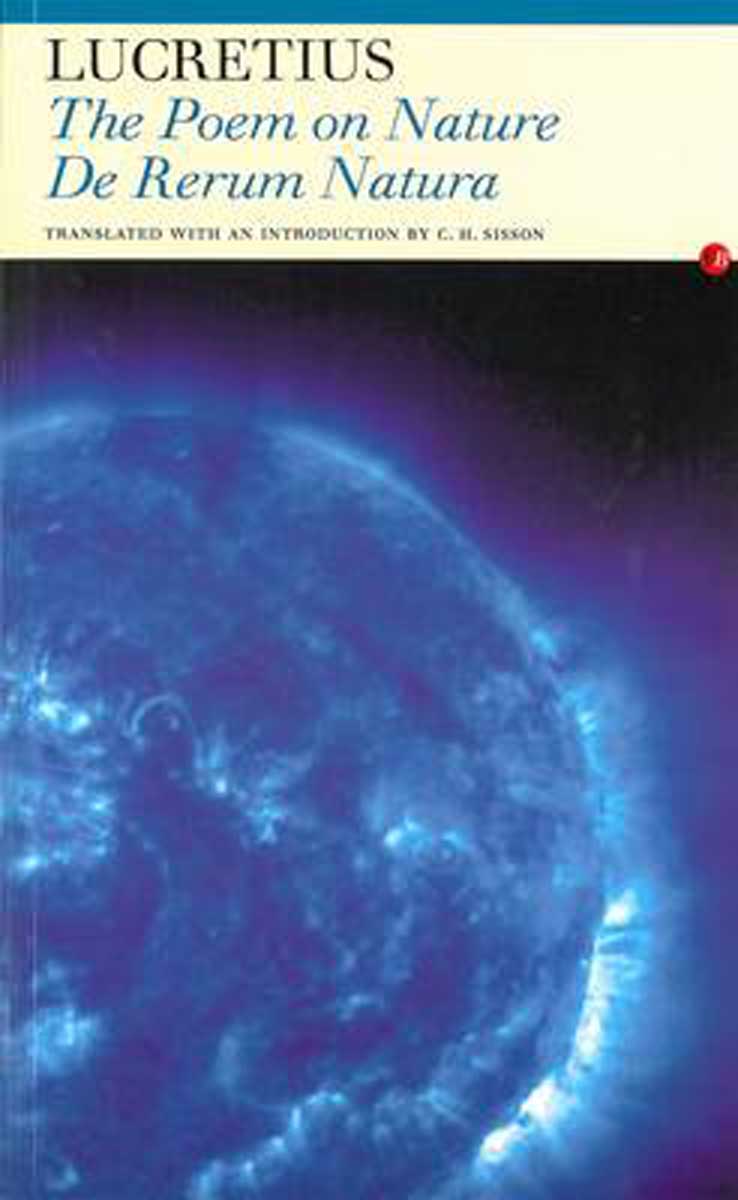De Rerum Natura
The Poem on Nature
The "De Rerum Natura of Lucretius" (99BC-55BC) is one of the great books of the world, a lucid explanation of physical phenomena that develops into a majestic vision of the ultimate nature of the universe.
Lucretius' observations of the particularities of the world remain vividly alive across the centuries. Through his eyes we see the growth of crops and the changing seasons, the behaviour of animals and the symptoms of disease. We follow his enquiring, scientific mind as he investigates the workings of mirror images, thunderstorms and magnetism, how we walk and what sleep is. The poem's power lies in the tension between this brief, sensuous, richness of life, and Lucretius' overarching belief in an empty universe of eternally recurring elements.
Lucretius' observations of the particularities of the world remain vividly alive across the centuries. Through his eyes we see the growth of crops and the changing seasons, the behaviour of animals and the symptoms of disease. We follow his enquiring, scientific mind as he investigates the workings of mirror images, thunderstorms and magnetism, how we walk and what sleep is. The poem's power lies in the tension between this brief, sensuous, richness of life, and Lucretius' overarching belief in an empty universe of eternally recurring elements.
About the author
Lucretius (Titus Lucretius Carus) was born c. 99 BC. Little is known of his life. St Jerome reports that Lucretius was driven mad by a love potion and that he committed suicide, but there is no evidence for either assertion. He is thought to have died c. 55 BC. "De Rerum Natura" was admired by Virgil, but Lucretius was forgotten until the rediscovery of the text at the beginning of the fifteenth century and the publication of the first edition in 1473. Translations of the work were made by John Evelyn and Dryden in the seventeenth century, and it was an important influence on Milton's "Paradise Lost".
Reviews
"C. H. Sisson's version of Lucretius's 'De Rerum Natura' is well worth having. It should help to bring back into active presence not only the most Latin of major Latin poets, but a work in which the perennial question as to whether science and poetry, philosophy and poetry, can be united receives an unsurpassed affirmative answer" – George Steiner


